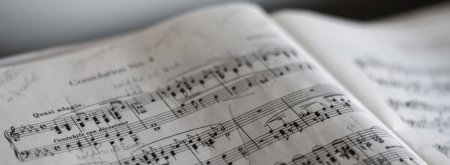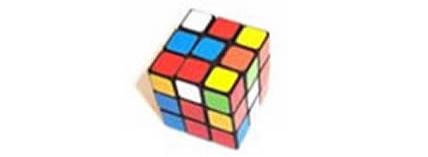How does Christianity Relate to Literature?
The act of reading is an act of decoding. Until our everyday habits are disrupted, we don’t realize how complex a process it is.
How Literature Works
Sitting in a tearoom in a shopping centre (not big enough to be a mall), I noticed an emergency exit with the notice, ‘This door is alarmed’, and began to wonder why a door should be worried. Of course, I am not meant to read it that way, but I can, because the language is multivalent. It is a literary reading, if you like; if you don’t, you might think it paranoia, but then there has often been a close relation between literature and madness. Freud’s analysis of his patients’ dreams in The Interpretation of Dreams reads like virtuoso literary criticism as much as diagnosis.
Transposing a sentence into a different context can change its meaning. Hence the student of literature needs to know about context – history, politics, and religion, for example. There is also a need to be aware of genre – the signal a book sends out that says you have to see me as a tragedy, or a sonnet, or a biology textbook, and respond accordingly. However, even that is a choice for the reader. When The Pilgrim’s Progress was first published in 1678, Bunyan used a quotation from Hosea on the title page (‘I have used similitudes’) and wrote a long verse ‘Apology’ which instructs the reader to read its images in a particular way. Because he says he ‘fell into an allegory’, it must be an allegory, and we read it as such. Yet there is no such prefatory permission in The Song of Songs in the Bible, and that has often been read as an allegory. Is that kind of reading illegitimate? No, but it is open to challenge, because the meaning and effect of any literary work (and the Bible is a literary work, though that is not all it is) is a complex negotiation between author and readers.
Generic expectation is not just a matter of finding signals and obeying the rules, though. Think of epic, among the earliest of genres (Homer, The Epic of Gilgamesh), and one of the most prestigious and ambitious. Epics are about heroes, the foundation of countries, or (like Paradise Lost) the foundation of the world. In our own time, the epic has retreated into the fantastic, or into irony, that characteristic contemporary (even postmodern) mode. As in Roy Fisher’s ‘Epic’, quoted in its entirety below, the grand claims of the traditional epic hero are ripe for undermining:
‘Stranger, in your own land
how do men call you?’
‘I will tell you. Men call me Roy
Fisher. Women call me
remote.’
(from Roy Fisher, The Long and the Short of It, Poems 1995–2005, Bloodaxe 2005, p.142).
Literary reading, then, is a high-level skill (to use the current jargon of education), which responds to complex invitations to discern and play with words and meaning, and introduces its own complexities of understanding. It asks for much more than downloading, or accessing information.
It is a human social activity, too, because meaning exists in a position between speakers, writers and readers. The readers are not just individuals, alone with a book in the quiet of a study or bedroom; they are part of communities, in schools and colleges, or learned societies, or congregations, or book groups, or people who read the same book reviews. Each of those has its protocols, its way of debating, of establishing authority, and of recognizing what counts as an interesting or legitimate reading.
Many readers will belong to more than one of these communities. A Christian student of literature will belong to several, and may find the tensions between them difficult to negotiate. She (or, occasionally, he) will be a member of a church, which will have a particular approach to the biblical text and quite a different one to other texts of contemporary culture; and maybe a Bible study group or Christian Union, which will have a similar approach but perhaps a less hierarchical, more subjective practice of reflective reading. On top of that, she will be a student in an English department, which will promote a range of approaches to reading, but she may have an individual tutor with a quite specific theoretical approach. Those approaches may conflict with what she has successfully practised at A-level. Like most sophisticated readers, she will be able to switch from one to the other more or less successfully. But sometimes that switch may demand too much. Coleridge famously described the experience of poetry as ‘That willing suspension of disbelief for the moment, which constitutes poetic faith’ (Biographia Literaria, 1817, ch.14). That provisional granting of oneself to someone else’s perceptual world is what makes reading, watching or listening an adventure in dialogue, or something unsettling and disorienting; and it is not usually possible to have one without the other.
In a recent book aimed mainly at the influence of the Quality Assurance Agency on universities, Thomas Doherty, Professor of English and Comparative Literature at Warwick and a long-time practitioner of poststructuralist readings of literature, makes an eloquent case for the transformative power of reading. Reading, he argues, is not about ‘knowledge-transfer’; it is ‘precisely the search for knowledge in the first place … the search for what the meaning of community might be or might become’ (The English Question, 2008, p.146). New readings of literature, rather like invigorating productions of old plays, combine finding things that were already ‘there’, maybe acknowledged by some previous reader, with something new that is brought to it by the subjectivity of the new reader, or the new historical situation in which they find themselves. The Catholic theologian, David Tracy has attempted to distinguish this from the experience of reading the ‘religious classic’, by which he means the books of the Bible as well as writers like Pascal or Donne. ‘The realized experience of the truth-character of the religious classic is an experience of its purely given character, its status as an event, a happening manifested to my experience, neither determined by nor produced by my subjectivity’ (The Analogical Imagination, 1981, p.198). In practice, I think this is a hard distinction to establish; but I think it does point to the way in which a text like the Bible can grab us, assert its authority by something which is not dependent on some formulation of its authority, through the operation of the Spirit. Tracy, like Alan Jacobs in A Theology of Reading: the Hermeneutics of Love (2001) is suggesting that Christian reading may need to be different in attitude from the ‘hermeneutics of suspicion’ that characterizes much contemporary criticism.
In their early encounters with theoretically informed reading, Christians might feel, with Luke Ferretter, that ‘Most contemporary literary theories are atheistic’ (Towards a Christian Literary Theory, 2003). The easy conclusion might be that a Christian approach needs to look back, to critics of literature from the Christian tradition like T.S. Eliot or C.S. Lewis, if not quite as far as Philip Sidney or Samuel Johnson. Yet that is to close off debate, and to retreat into a mere comfort zone. Many contemporary Christian critics, such as Valentine Cunningham in In the Reading Gaol, Kevin Mills in Justifying Language and John Schad, most recently in Queer Fish: Christian Unreason from Darwin to Derrida, have confronted the challenge of deconstruction with more subtlety and respect than a search and destroy mission (as does Jacobs, above). Equally, we need to recognise that some of the most influential philosopher-critics of the recent past have been much involved with religion, Derrida especially. Some of them, such as Mikhail Bakhtin and Paul Ricoeur, have done so from a Christian perspective that needs a bit of uncovering, but it is undoubtedly there (see, for example, Ruth Coates, Christianity in Bakhtin, and the concluding chapter of Graham Pechey, Mikhail Bakhtin: The Word in the World).
The theoretical conflict is serious and sometimes pressing, but there is another, week-by-week issue, which is the challenge of literary texts themselves. Here, sometimes, Christian academics and Christian students have an advantage – they recognize biblical and religious ideas where their contemporaries don’t. This may make them seem obsessive, but most of the time they are welcomed as repositories of knowledge to an era which has lost the biblical literacy of previous generations. The fact that most of them/us don’t read the Bible in the King James version, or worship according to the 1662 Book of Common Prayer, is a slight disadvantage in this respect, though. This is by no means confined to the explicitly Christian canonical writers of the Middle Ages or the seventeenth century. It can apply equally to Jane Eyre, or Waiting for Godot, or the stories of Flannery O’Connor.
To see that there is a Christian reference in a text is, perhaps, no more than a good edition’s footnotes should give you anyway. However, when many students (as my colleagues complain) have so little in the way of intellectual furniture, ideas with which to operate, then it is a Christian student’s calling to equip themselves with some decent theology. On creativity and the idea of creation, for example, read Genesis, of course, but also Colin Gunton The One, the Three and the Many: God, Creation and the Culture of Modernity (1993), and the first part of David Thistlethwaite, The Art of God and the Religions of Art (1998). This would give an interesting basis for looking at the poetics of creation in Wordsworth and Coleridge, for example. Coleridge in particular locates the act of imagination within theological co-ordinates.
That Romantic perception, that human creativity is a function of our humanity, part of our being made in the image of God, ‘a repetition in the finite mind of the eternal act of creation in the infinite I AM’ (Coleridge in Biographia Literaria), can slip sideways into a belief that creativity can be a substitute for religion. Art, especially literature, can try to take over the functions of religion, giving us the metaphysical consolations without the dogma. The birth of ‘English’ as an academic subject, the successor to Classics as the basis of a humanist, liberal education can be traced back to Matthew Arnold in the high Victorian era; and for him and many of his successors, the English Bible was an inescapable part of it. It’s not just ‘background’, picking up allusions; it helps to explain the moral passion of, for example, D.H. Lawrence, torn between the imaginative power of religion and (as he saw it) the need to emancipate oneself from it.
The Return to Religion in Contemporary Criticism
When Stanley Fish, the influential and combative American literary critic, was asked recently what would happen to criticism now Derrida, the father of deconstruction, has died, he replied simply ‘religion’. This could mean that criticism in America will go the way of presidential politics in America, but it is much more complex than that. In a way Fish was only reporting what was already happening. Derrida himself, at least since Glas (published in French in 1974) had confronted questions of religion with sympathy and acuity.
Stephen Greenblatt, the founder of New Historicism, one of the most influential schools of criticism practised today, has become increasingly concerned with Shakespeare’s religion, in particular with his father’s Catholicism. In Hamlet in Purgatory, and the more recent biography Will in the World, he has developed a picture of Shakespeare as responding creatively to the Reformation:
Shakespeare grasped that crucial death rituals in his culture had been gutted. He may have felt this with enormous pain at his son’s graveside. [Hamnet died in 1596, aged 11]. But he also believed that the theatre – and his theatrical art in particular – could tap into the great reservoir of passionate feelings that, for him and for thousands of his contemporaries, no longer had a satisfactory outlet ... Shakespeare drew upon the pity, confusion and dread of death in a world of damaged rituals (the world in which most of us continue to live) because he himself experienced those same emotions at the core of his being ... He responded not with prayers but with the deepest expression of his being: Hamlet. (Will in the World, p.321).
Now, this is not a response to Shakespeare from a Christian faith position, but it is a recognition of the importance of religion to the creation and reception of a key literary work.
Specialists in seventeenth-century literature are used to sophisticated, theologically aware studies of Christian writers like Milton, Bunyan and Herbert, but, apart from Marlowe’s alleged atheism, the religious dimensions of theatrical writing have been sidelined. Now, with Greenblatt’s books, Richard Wilson’s research on the possible Lancastrian Catholic affiliations of Shakespeare, and Stephen Marx’s more modest but in some ways more useful study, Shakespeare and the Bible, the emphasis is changing. It may be that, as one of Greenblatt’s reviewers has noted, he needs Shakespeare to be a Catholic, and that is a fragile position. But the point I am making is different. There is a moment in academic criticism when the study of religion and its relation to literature has become more viable because those who do not necessarily share that kind of belief have recognized its importance.
We can see this in the textbooks, too. Andrew Bennett and Nicholas Royle’s Introduction to Literature, Criticism and Theory is now in its third edition (2004) and is widely used and accepted in English departments. Because it does not deal with theories one by one (as does, for example, Peter Barry’s Beginning Theory, possibly even more widely used) it has space for dealing with the familiar terms in which literature is viewed (character, laughter, war, for example) as well as the postmodern and the queer. And so, chapter 19 has ten pages on God, sandwiched between sexual difference and ideology. It is an invigorating and revealing chapter, based round six edicts: ‘God is an anthropomorphism’, ‘God is dead’, ‘To acknowledge the idea that God is an anthropomorphism or that he is dead is not the same as getting rid of him’, ‘religion is everywhere’, ‘literature has an evil streak’, and ‘literature is sacred’. Maybe for a student unsure of his or her faith, some of those statements would be threatening, but for anyone prepared to take it on, such statements offers a space for thinking and arguing about literature from a Christian perspective.
Some pointers for further reading on the relationships between Christianity and Literature
For starters, try the essays in The Discerning Reader, ed. Barratt, Pooley & Ryken (Leicester 1995) and Michael Edwards, Towards a Christian Poetics (1984).
For A-level or book group readers, a useful book is Bridget Nichols, Literature in Christian perspective: becoming faithful readers (2000).
There is a useful handbook with extracts, The Bible in Western Culture: the Student’s Guide, by Dee Dyas & Esther Hughes (2005) which is widely available.
Paul Cavill and Heather Ward have written The Christian Tradition in English Literature (2007), which is keyed into the Norton anthology, and has informative appendices and a glossary.
There is a long Christian tradition of poetics by imaginative writers in England, from Sidney’s Apology for Poetry to the essays of T.S. Eliot and W.H. Auden. The Inklings’ work is interesting, too: most useful for the Christian critic is Tolkien’s essays in Tree and Leaf, though Lewis’s An Experiment in Criticism has its devotees.
Of more realistic writers, Flannery O’Connor’s essays and letters are invaluable. She offers a plausible theology of Christian realism.
For reference, consult David Lyle Jeffrey, A Dictionary of Biblical Tradition in English Literature and Isabel Rivers, Classical and Christian ideas in English Renaissance Poetry. The CD ROMs Images of Salvation in Medieval Art and Literature and Pilgrims and Pilgrimage, produced by the Christianity and Culture group, is attractive and valuable for students and teachers.
There are two academic journals, Christianity and Literature and Literature and Theology which publish high-quality articles on a regular basis. Many university libraries will subscribe to one or both of these. The Glass comes out once or twice a year from the Christian Literary Studies Group, who also hold annual conferences (visit www.clsg.org). There are some more popular American periodicals, notably Books and Culture, which often have useful material on the arts, and sometimes read like a plea not to despise culture and intellect addressed to the American Christian situation. When the current Archbishop of Canterbury is a published poet and literary critic, the situation in this country may be a bit different – but then think of the rubbish we tolerate as words to worship songs! (See Nick Page, And now for a time of nonsense ... why worship songs are failing the church; and contrast the magisterial work on the English hymn tradition by J.R. Watson, a recently retired professor of English at Durham.)
Conclusion
There are no easy answers to the question of how Christians should approach literature and literary studies. We have tried to show that the situation is complex, open and challenging. But no-one can argue that literary study has moved on from Christianity, or religion. At a more popular level, think of the great success of Philip Pullman’s His Dark Materials trilogy, which revisits Milton, Blake and Genesis and, in a rather more hostile way, C.S. Lewis. Our culture may question the privileged position Christian institutions once had; but it is full of invitations to re-examine its ideas, texts and reading practices for a new situation.
© 2008 Paul Cavill and Roger Pooley
This paper was originally drafted by Paul Cavill of Nottingham University and Roger Pooley of Keele University for the Christian Academic Network website. It has been published in The Glass, the annual publication of the Christian Literary Studies Group and has been slightly revised for bethinking.org in the hope that it might assist Christian students of literature to think through the consequences of their Christian commitment for their work, and interest those who are considering the claims of Christianity on their imagination and intellect.



